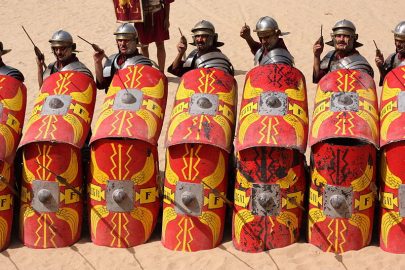Among fragments of ink-on-wood writing tablets discovered at the Roman fort of Vindolanda in northern England (“Tablet Time,” November/December 2017) are newly translated documents from the personal correspondence of Julius Verecundus, the fort’s first known commanding officer.
The tablets are thought to date to between the fort’s construction in A.D. 85 and a subsequent rebuild in A.D. 90. In one curious dispatch, a decurion, or cavalry officer, named Masclus requests leave for five men from the Raetian tribe of the Alps. He also reports on the status of plant cuttings and asks for the return of a certain knife.
also read
Five rare silver ancient Greek coins returned to Greece
Genetic study reveals who exactly the Romans were
“Verecundus commanded the First Cohort of Tungrians, an infantry-only unit from what is now Belgium,” says archaeologist Andrew Birley, director of excavations for the Vindolanda Trust. “Why is a decurion making this request, particularly on behalf of men described as non-Tungrians?”
To compound the intrigue, Masclus also appears in other, previously translated, tablets from Vindolanda dating to a later period, when a different cohort and commander were garrisoned there. “Masclus’ role was likely more complex than his title would suggest,” says Birley, “just as ethnic auxiliary cohorts were probably quite diverse.”
source archaeology.org
Ask me anything
Explore related questions





